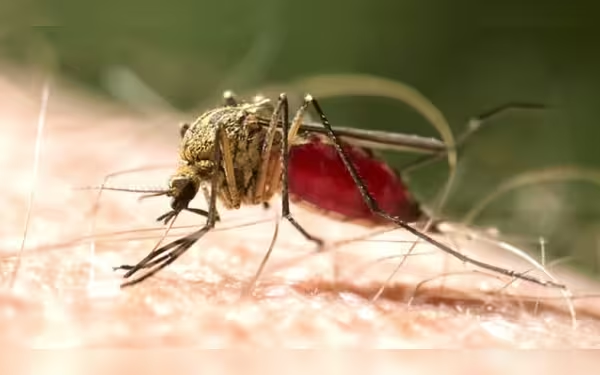Saturday, November 16, 2024 07:41 PM
Chikungunya Epidemic Hits Pakistan: Urgent Public Health Crisis
- Chikungunya cases surge across Pakistan.
- High diagnostic test costs hinder treatment.
- Public urged to eliminate mosquito breeding sites.
 Image Credits: tribune.com.pk
Image Credits: tribune.com.pkChikungunya has escalated into an epidemic in Pakistan, raising public health concerns and highlighting the need for preventive measures.
Chikungunya, a viral disease transmitted by mosquitoes, has recently spiraled into an epidemic in various regions of Pakistan. This illness, characterized by fever and severe joint pain, has become a significant public health concern. The rapid increase in cases has raised alarms among health officials and the general public alike, as the country grapples with the dual threat of chikungunya and other vector-borne diseases such as dengue.
One of the primary challenges in combating chikungunya is the high cost of diagnostic tests. Many patients find themselves unable to afford these tests, leading to widespread self-diagnosis. This situation not only complicates the management of the disease but also increases the risk of misdiagnosis, which can have serious health implications. Furthermore, the lack of specific treatments for chikungunya means that patients often have to rely on over-the-counter medications to alleviate their symptoms, which may not always be effective.
The unbridled breeding of mosquitoes has been a significant factor in the rise of chikungunya cases. Stagnant water, poor sanitation, and inadequate waste management create ideal breeding grounds for these disease-carrying insects. As a result, the number of vector-borne diseases has surged, putting additional strain on the healthcare system. Health authorities are urging the public to take preventive measures, such as eliminating standing water and using mosquito repellents, to help curb the spread of these diseases.
In light of the current epidemic, it is crucial for individuals to stay informed about the symptoms of chikungunya and seek medical attention if they experience any signs of the disease. Awareness campaigns and community engagement are essential in educating the public about prevention strategies and the importance of timely diagnosis. As the situation evolves, it is imperative for both the government and citizens to work together to combat this growing health crisis.
The chikungunya epidemic serves as a stark reminder of the importance of public health measures and community awareness. By understanding the risks and taking proactive steps, we can collectively mitigate the impact of this disease. It is vital for everyone to play their part in creating a healthier environment, not just for themselves but for the entire community.













